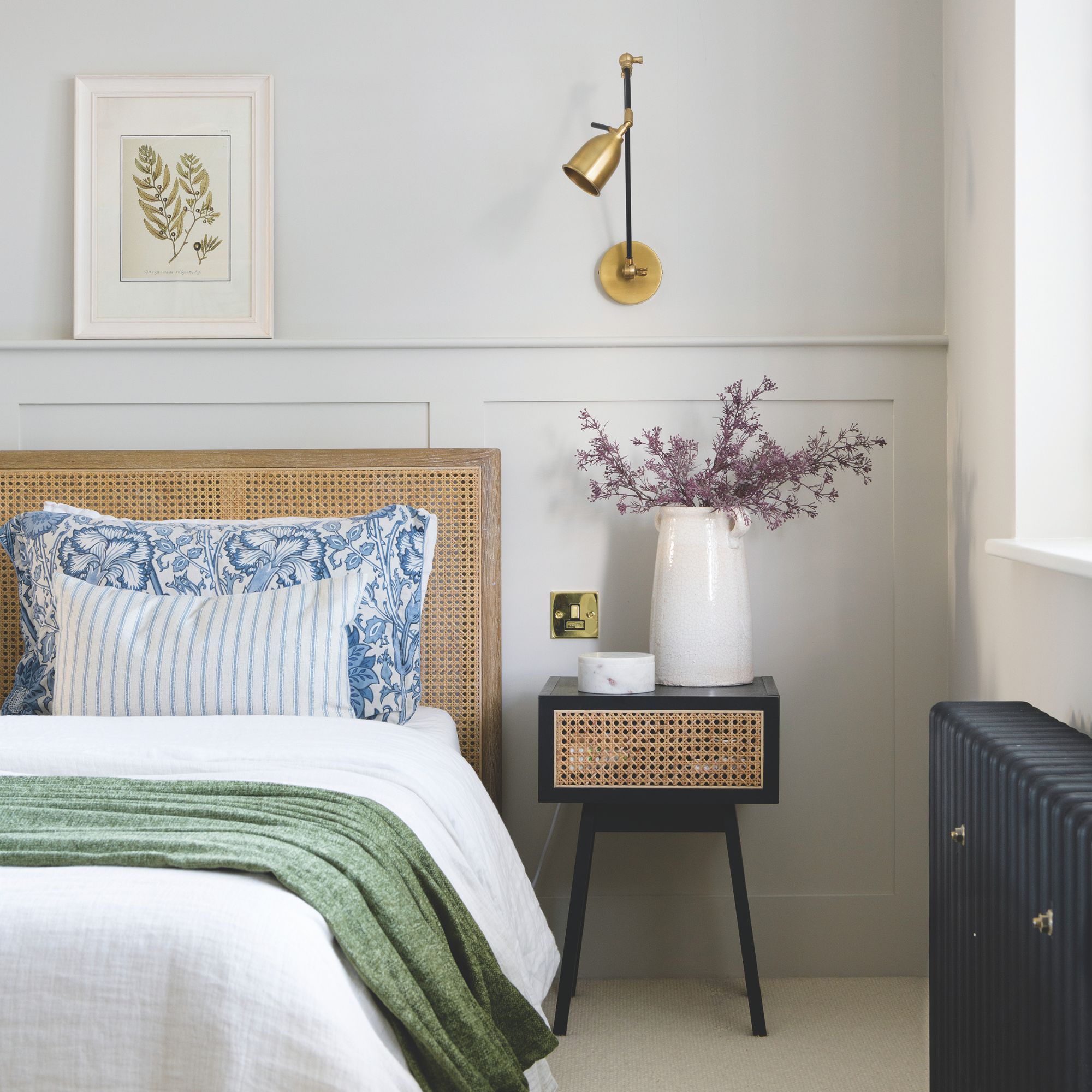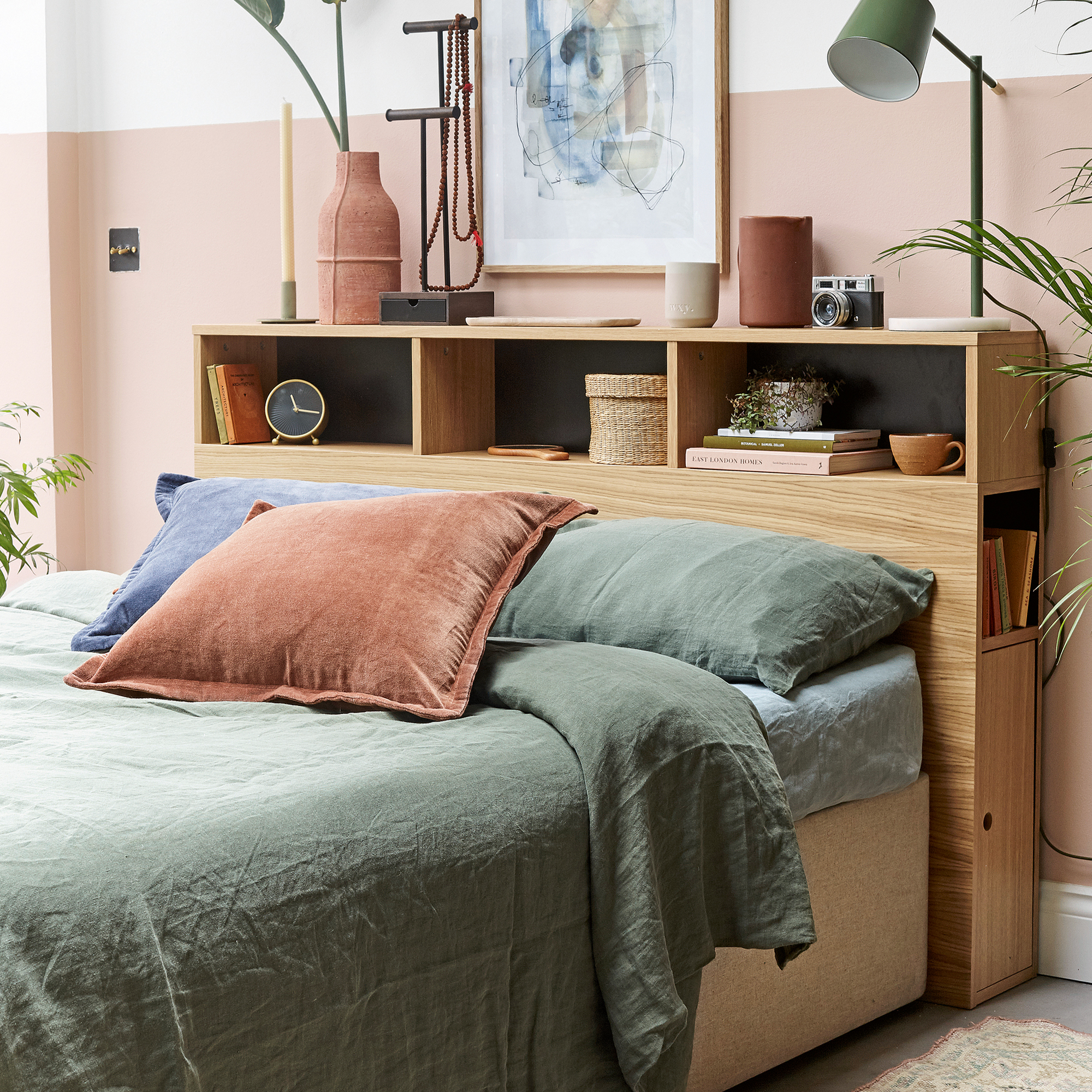8 things I wish I'd known before buying a mattress
These are the top tips I offer to all of my friends


I’ve been reviewing sleep products for more than three years now. I’ve tested every type of mattress on the market: pocket-sprung, open coil, foam, memory foam, and hybrid. You name it, I've tested it, and I’ve also tested mattresses for all budgets.
So I know a bit about finding the best mattress. And I know that it’s all a bit subjective depending on a range of factors. This is what makes finding a good mattress so confusing – your ideal mattress might be awful for someone else. No judgement; we’re all different.
The factors that affect which mattress you should buy are something we’re going to explore in depth here. And I’ll share some advice I give to anyone who’s in the market for a new mattress.

1. Find the right tension for you
Mattresses come in a range of tensions. Tension means how soft or firm a mattress is. There’s no standardised measurement across the market, so one brand’s firm mattress might be a lot softer than another.
But tension is important because it directly impacts our comfort levels. And different tensions are right for different people.
A firm or medium/firm mattress is good for heavier builds as the firmer tension gives more comprehensive support that heavier people will find comfortable. Lighter body types are likely to find medium or soft tensions more comfortable for them. If you’re waking up with aching joints or pins and needles, you may be sleeping on a mattress that’s too firm for you.
‘Even at a lower price point, ensure the mattress provides adequate support and comfort,’ says Michael Buckle, Senior Mattress Buyer at Dreams. ‘Look for options with good reviews for their support, as a poorly supportive mattress can lead to discomfort and back pain.’
Sign up to our newsletter for style inspiration, real homes, project and garden advice and shopping know-how
‘Unless specifically recommended for your sleep style or health condition, extremely firm or soft mattresses can cause discomfort,’ says Michael.
‘People tend to think they need a firmer mattress than they really do,’ the IKEA selling team adds. ‘[This] is why we love hotel bedrooms with all the added comfort – plus they think of a mattress in isolation.’ This leads us neatly on to…
2. Think about your whole bedroom set up
Finding a good mattress can do brilliant things for your sleep comfort, but it’s not a miracle worker. When buying your mattress you need to think about your whole bedroom environment. Finding the best pillow and best duvet for your individual needs is just as important – that's because the pillows, duvet, and mattress need to work as a team so you get maximum comfort.
For example, there is no point in going for a wool mattress that’s super breathable and designed to keep you cool, if you don’t match that with duvet fillings that are breathable and a cooling pillow.
‘For great sleep, thinking about the warmth of the duvet; the firmness of the pillows; the temperature in the room; and the need to tweak the mattress comfort with a topper all play into the equation,’ says the IKEA selling team.

3. Check the durability of your mattress
A mattress is an expensive item, so you’re going to want it to last you a while. Unfortunately, not all mattresses have the same life span, and some mattresses might quickly start showing signs you need to replace them.
It’s hard to know if a mattress is going to be durable just by looking at it. A mattress brand is hardly going to say their mattress won’t last past two years. So I recommend delving deep into mattress reviews.
‘Check the durability by reading customer reviews,’ agrees Michael from Dreams. ‘A mattress that holds up over time will be more cost-effective in the long run.’
Another sign of a good-quality mattress is a brand or retailer that gives you peace of mind. So my next tip would be…
4. Look into the warranty and trial period
I’ve heard of more than one person who’s bought a mattress having never laid on it before. Don’t be those people: testing is vital before you buy because how a mattress feels to you can differ greatly from how it feels for someone else. If you can’t get to a store to lie on a mattress before you buy, many brands – especially mattresses-in-box brands – now offer sleep trials.
This is especially important as, as Dave Gibson, registered osteopath, sleep expert, and founder of The Sleep Site shares, 'it can take about four weeks to fully adjust to a new mattress'.
But look into the trial periods and warranties carefully. Some have fairly comprehensive small print that might catch you out otherwise.
‘Prioritise mattresses that come with a reasonable warranty and a trial period,’ agrees Michael from Dreams. ‘This ensures you can test the mattress at home and return it if it doesn’t meet your expectations. A lack of warranty can be a red flag for poor quality,’ he also warns.
5. Figure out what size mattress you need
Size matters in the world of mattresses. Make sure you’re ordering the right size mattress for your bed frame. A common mattress buying mistake is ordering a UK size for an EU-sized bed.
‘Ensure the mattress fits your bed frame and room,’ says Michael from Dreams. ‘A mattress that is too large or too small might force you to spend more than planned. To avoid any issues, be sure to shop with a trusted brand or retailer.’
When choosing the right mattress size my advice would be to go for as large a bed/mattress size as you can comfortably fit in your room, especially if you share a bed with a partner. Rarely has anyone ever complained about a mattress being too large, but people often complain about their bed being too small.

6. Who you’re sleeping next to will affect the mattress you want
Unless you sleep alone all the time, you’ll need to factor in whoever sleeps next to you and consider their preferences when choosing a mattress too. Some couples find this really tricky.
‘When you share a bed, you’ll need a mattress that suits both of your needs, even if they’re very different,’ points out Scott Witherall, Product Development Manager at mattress and bed retailer Bensons For Beds.
A solution to this problem is a zip-and-link mattress with different tensions in each mattress. You can also get split-tension mattresses, which is the same idea but without the zip down the middle.
7. Your sleeping position affects what mattress is right for you
‘Your sleep posture is one of the most important things to consider when it comes to picking a new mattress,’ says Scott from Benson for Beds.
Whether you’re a side, back, front or combination sleeper will partly dictate what mattress is right for you. When you’re asleep it’s essential you get the right support so that your spine is aligned. Different sleep positions affect what mattress support you need, for instance, the things a side sleeper needs from a mattress are different to those that a back sleeper requires.
Generally speaking, a side sleeper needs a medium or medium-firm mattress with a well-cushioned top that allows the shoulder and hip to sink in. A back sleeper needs a medium-firm or firm mattress with a little less cushioning on top, and a front sleeper needs a firmer more responsive mattress that doesn't have so much cushioning that the hips sink too low.

8. The wrong mattress can exacerbate your allergies
Since becoming a sleep product reviewer, and as the Mum of a child with dust-mite allergies, I've learned a lot about how sleep and allergies are intertwined and how important it is to find the best mattress for allergies if you suffer.
A lot of people are allergic to dust mites, and they love to live in mattresses, duvets, and pillows. Grim, but true.
If you have an allergy, opting for a hypoallergenic mattress is going to be almost essential for a better night's sleep.
This is the advice I give to all of my friends when they tell me they're on the hunt for a new mattress, so hopefully my eight top tips will help if you're searching for a better night's sleep too.

Zoe is a freelance journalist and content strategist. Her career has traversed kids' publishing, women's lifestyle magazines, luxury property and content marketing. She's worked for the BBC, STYLIST, Marie Claire, heat, Wallpaper*, InStyle, The Sunday Times Style, Ocado, Christie's and more. She now regularly writes about interiors and sleep for a range of media – what she doesn't know about mattresses isn't worth knowing.